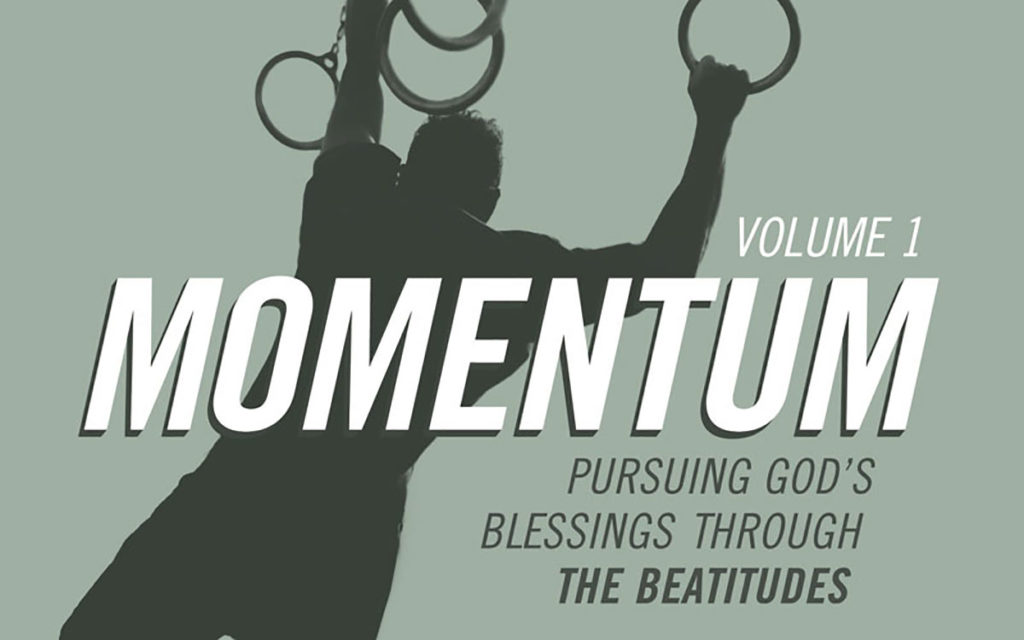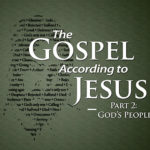For many people in our culture, sin has become a word that describes slightly indulgent things that are entirely legitimate, like eating too much chocolate.
Imagine a thirty-five-year-old husband and father at home on a Sunday morning. Let’s call him Bob. He has finished reading the Sunday paper, and he decides that he will tackle that often postponed task of cleaning out his basement. As he sorts through the boxes, Bob comes across an old family Bible that belonged to his grandmother. Something inside tells him he should not throw it away; after all it’s old, and there are notes in his grandmother’s frail handwriting on many of the pages. He opens it up and reads that “Christ Jesus came into the world to save sinners” (1 Timothy 1:15).
This strikes Bob as rather quaint. Jesus came to save overindulgent people! Bob likes to enjoy a cream pie and knows that he probably shouldn’t, but he works out and is generally in good health, so what does he need saving from? He flicks over a few pages and reads that God was angry with people who sinned (Hebrews 3:10). This doesn’t make any sense to Bob. Why would sin, as he understands it, make God angry? What kind of God would be angry toward people who indulge in a little bit of pleasure?
So Bob closes the Bible, reassured that he made the right choice to spend his Sunday morning at home. He loves his wife and his kids, and he cannot see why his grandmother thought the Bible was such a wonderful book.
The Priority of Godliness
Sin is a destructive power. It can ruin a life, a family, or a church. Second Kings 17 tells us how it destroyed a nation. After the death of Solomon, the ten tribes in the north declared their independence from the two tribes in the south, separating themselves from the blessing God had promised to the royal line of David. There were nineteen northern kings, and every one of them did evil in the eyes of the Lord. After about two hundred years, God allowed enemies to overrun the northern kingdom. The people were deported, and the whole area became a kind of wasteland.
The first king of the ten northern tribes was determined that his people would not go to Jerusalem to worship God. So he established his own religion at Dan and Bethel, where he set up two golden calves.
This man-made religion led to a culture where the rich lived in opulence and showed total disregard for the poor. The streets were filled with violence, and God’s people indulged in the obscene practice of giving up unwanted children to be burned in a fire.
And yet the first charge God brought against His people was not the violence, the murder, the greed, or even the cruelty to children. God’s first complaint was that His people had worshiped other gods (2 Kings 17:7).
The first four commandments are all about God Himself: “You shall have no other gods before me. You shall not make for yourself a carved image… You shall not take the name of the LORD your God in vain… Remember the Sabbath day, to keep it holy” (Exodus 20:3–8). Our first calling is to a God-centered life.
The Bible calls this “godliness” (e.g. 1 Timothy 4:7), and this priority is confirmed by the teaching of Jesus. When asked about the greatest commandment, Jesus replied: “You shall love the Lord your God with all your heart and with all your soul and with all your mind” (Matthew 22:37).
Godliness Leads to Righteousness
After He calls us to godliness in the first four commandments, God calls us to righteousness in our relationship to others: “Honor your father and your mother… You shall not murder. You shall not commit adultery. You shall not steal. You shall not bear false witness… You shall not covet” (Exodus 20:12–17).
God calls us to reflect His love in our relationships with other people. Christ confirmed this when He said that the second commandment is to “love your neighbor as yourself” (Matthew 22:39).
In the northern kingdom, sin began with the people rejecting God, and it ended with them putting their children in the fire. The reason they lost the morality of the Bible is that they rejected the God of the Bible. You cannot have righteousness without godliness.
Life without God
Our friend Bob, who is clearing out his basement on Sunday morning, wants his family to enjoy the benefits of righteousness. He wants his marriage to succeed, and he would like the people who do business with him to be honest and keep to their word. He expects public officials not to tell lies, and he wants his children to be safe.
Bob wants all the benefits of righteousness, but he does not want God. And that is his first and greatest sin. Bob is godless. He is a successful family man who wants the best for himself and his family, but he has no place for God in his life.
Our first instinct is not to love God but to resent Him. His power seems to threaten our freedom and His holiness offends our pride. Unless God changes our hearts, we will always resent Him. The sinful mind is hostile to God (Romans 8:7).
Provoking the Anger of God
But God is immensely patient. For two hundred years He restrained judgment and sent the prophets to call His people back to godliness and righteousness, but they would not listen (2 Kings 17:14). Instead, “they did wicked things, provoking the LORD to anger” (17:11).
Notice the word “provoking.” Anger is not in God’s nature. God is always holy, He is always love, but He is not always angry. The ancient gods were angry by nature, always smoldering and constantly needing to be appeased. Offerings were given to placate them, but their anger never went away. It was never spent; it was only contained. But the God of the Bible is entirely different: “The LORD is… slow to anger and abounding in steadfast love” (Psalm 103:8).
It is not God’s nature to be angry, but He can be provoked to anger, and for this we should be thankful. We do not admire those who stand idly by while others are being abused. How could we worship a god who was indifferent when people put their children in the fire?
Notice what God does when He is provoked to anger: “Therefore the LORD was very angry with Israel and removed them out of his sight” (2 Kings 17:18), a reference to the Promised Land.
At the end of the Bible story we are told that every person who has ever lived will stand before God, and the ungodly and the unrighteous will be driven from the presence of God. That is hell—eternity outside the blessing of God.
God’s Mercy in Action
When God removed His people from His presence, the land He had promised to bless lay desolate and uninhabited. But the king of Assyria repopulated the area by bringing people from all over his empire and settling them there (2 Kings 17:24).
When these immigrants arrived, they faced an unexpected problem. Several of them were attacked by lions. When word of this problem got back to the king of Assyria, he thought the best way to deal with the situation would be to find a priest from among the people who used to live there. He assumed that a local priest would know what to do to placate whatever god was causing this problem. So he gave orders for a Jewish priest to be sent back to Israel, and “one of the priests whom they had carried away from Samaria came and lived in Bethel and taught them how they should fear the LORD” (17:28).
Here was God’s mercy in action. He brought people from the north, south, east, and west into the place He had promised to bless, and He sent one of His priests there so that these people could come to know Him.
People from many nations were brought to a knowledge of the truth, but over time they became confused because they continued to worship their own gods as well (17:29). These people came to be known as the Samaritans.
When Jesus went through Samaria (John 4:4), He met a woman there who was ungodly and unrighteous. Jesus did not begin by telling her that God is angry over her sins. He began by guiding her toward a right relationship with God. He told her that God is seeking “worshipers [who] will worship the Father in spirit and truth” (4:23).
Godliness is the root of righteousness, and there is little point in talking about righteousness to a person who does not know and love God. Jesus began by speaking to the Samaritan woman about knowing God, because that is where lasting change begins.
Christ died to deal with both our ungodliness and our unrighteousness. On the cross, the Father dealt with the Son as if He had lived a godless life and as if He were guilty of every kind of unrighteousness. The Father turned away from His Son, and He was shut out from the presence of God. That is why He cried out, “My God, my God, why have you forsaken me?” (Matthew 27:46)
Christ “suffered once for sins, the righteous for the unrighteous, that he might bring us to God” (1 Peter 3:18). If you will come to Jesus in faith and repentance, He will lead you into a godly life that will be the beginning of your growth in righteousness.
Opened
God calls us to godliness and righteousness. We are to love God with our whole heart, and we are to love our neighbor as ourselves. Morality cannot be sustained when we lose the knowledge of God. But when we come to Jesus Christ, He will reconcile us to the Father and lead us in paths of righteousness.








